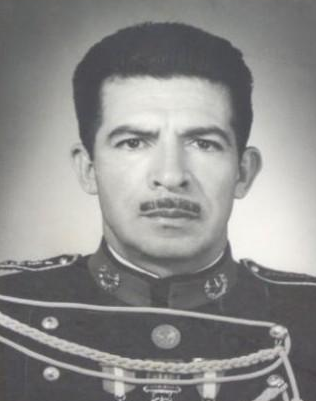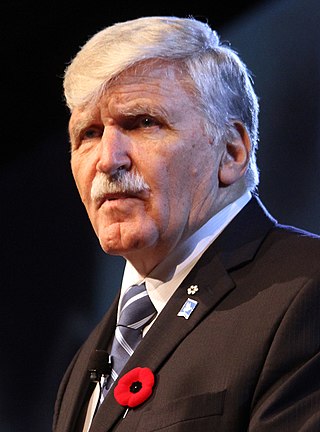
Government Communications Headquarters, commonly known as GCHQ, is an intelligence and security organisation responsible for providing signals intelligence (SIGINT) and information assurance (IA) to the government and armed forces of the United Kingdom. Primarily based at "The Doughnut" in the suburbs of Cheltenham, GCHQ is the responsibility of the country's Secretary of State for Foreign and Commonwealth Affairs, but it is not a part of the Foreign Office and its Director ranks as a Permanent Secretary.

Australian Signals Directorate (ASD), formerly the Defence Signals Directorate (DSD) is the federal statutory agency in the Australian Government responsible for foreign signals intelligence, support to military operations, cyber warfare, and information security. ASD is part of the Australian Intelligence Community. ASD's role within UKUSA Agreement is to monitor signals intelligence ("SIGINIT") in South and East Asia. The ASD also houses the Australian Cyber Security Centre.

The United States National Security Council (NSC) is the principal forum used by the President of the United States for consideration of national security, military, and foreign policy matters. Based in the White House, it is part of the Executive Office of the President of the United States, and composed of senior national security advisors and Cabinet officials.

José Efraín Ríos Montt was a Guatemalan military officer and politician who served as de facto President of Guatemala in 1982–83. His brief tenure as chief executive was one of the bloodiest periods in the long-running Guatemalan Civil War. Ríos Montt's counter-insurgency strategies significantly weakened the Marxist guerrillas organized under the umbrella of the Guatemalan National Revolutionary Unity (URNG), while also leading to accusations of war crimes and genocide perpetrated by the Guatemalan Army under his leadership.

Charles Anthony Raven Crosland was a British Labour Party politician and author. A social democrat on the right wing of the Labour Party, he was a prominent socialist intellectual. His influential book The Future of Socialism (1956) argued against many Marxist notions and the traditional Labour Party doctrine that expanding public ownership was essential to make socialism work, arguing instead for prioritising the end of poverty and improving public services. He offered positive alternatives to both the right wing and left wing of the Labour Party.

Roméo Antonius Dallaire is a Canadian humanitarian, author, retired senator and Canadian Forces lieutenant-general. Dallaire served as force commander of UNAMIR, the ill-fated United Nations peacekeeping force for Rwanda between 1993 and 1994, and attempted to stop the genocide that was being waged by Hutu extremists against the Tutsi people and Hutu moderates.

Duncan Campbell is a British freelance investigative journalist, author, and television producer. Since 1975, he has specialised in the subjects of intelligence and security services, defence, policing, civil liberties and, latterly, computer forensics. He was a staff writer at the New Statesman from 1978 to 1991 and associate editor (Investigations) from 1988 to 1991. He was prosecuted under the Official Secrets Act in the ABC trial in 1978 and made the controversial series Secret Society for the BBC in 1987. In 1988, he revealed the existence of the ECHELON surveillance program.

Arnold Abraham Goodman, Baron Goodman, CH, was a British lawyer and political advisor.

Iain Campbell Dale is a British broadcaster, author and political commentator, and a former publisher and book retailer. He has been a blogger since 2002. In 2005, he became the first openly gay Conservative candidate to contest a parliamentary election. He was the publisher of the magazine Total Politics between 2008 and 2012, and the managing director of Biteback Publishing until May 2018. Since September 2010, he has hosted a regular discussion show on the radio station LBC. He was named Radio Presenter of the Year at the Arqiva Commercial Radio Awards in both 2013 and 2016.
Harriet Slater CBE was a British Labour and Co-operative politician.

Arif Masood Naqvi is a Pakistani businessman, who was the founder and chief executive of the Dubai-based private equity firm, The Abraaj Group and Aman Foundation. The Abraaj Group was founded in 2002 and operated in Africa, Asia, Latin America, Middle East, Turkey and Central Asia, and is currently in liquidation due to accusations of fraud.

The Abraaj Group was a private equity firm operating in six continents that is currently in liquidation due to accusations of fraud. The firm was founded by Pakistani businessman Arif Naqvi and was based in Dubai, United Arab Emirates.
Political cleansing of population is eliminating categories of people in specific areas for political reasons. The means may vary from forced migration to genocide.
Robert Waller is a British election expert, author, teacher, and former opinion pollster. His best known published work is The Almanac of British Politics, a guide to the voting patterns of all United Kingdom parliamentary constituencies.

The Federal Investigation Agency is a border control, criminal investigation, counter-intelligence and security agency under the control of the Interior Secretary of Pakistan, tasked with investigative jurisdiction on undertaking operations against terrorism, espionage, federal crimes, smuggling as well as infringement and other specific crimes.
Isabel Euphemia Oakeshott is a British political journalist and broadcaster.

James Wharton is the author of Out in the Army: My life as a gay soldier and Something for the Weekend': Life in the chemsex underworld and an LGBT activist. Wharton was born in Wrexham on the first of January 1987, and grew up in the nearby village of Gwersyllt. In 2009, he garnered attention by featuring on the cover of Soldier Magazine – the official monthly publication of the British Army – as an openly gay trooper in the Blues and Royals. Wharton came out as gay to his regiment in 2005, aged 18 and just six years after the army's discrimination against gay people was declared a breach of human rights by the European Court of Human Rights. Before 2000, Wharton could have been court-martialled.

Genocide is the deliberate and systematic destruction, in whole or in part, of an ethnic, racial, religious, or national group. The term was coined in 1944 by Raphael Lemkin. It is defined in Article 2 of the Convention on the Prevention and Punishment of the Crime of Genocide (CPPCG) of 1948 as "any of the following acts committed with intent to destroy, in whole or in part, a national, ethnical, racial, or religious group, as such: killing members of the group; causing serious bodily or mental harm to members of the group; deliberately inflicting on the groups conditions of life, calculated to bring about its physical destruction in whole or in part; imposing measures intended to prevent births within the group; [and] forcibly transferring children of the group to another group."
Dhiren Bhagat (1957–1988) was an Indian journalist. His writing appeared in prominent publications of the pre-1990 era, and have been compiled in a book published by Viking. A contributor to the mainstream Indian and British media, his work was widely noticed, as was his early death at the age of 31.
Lucy Fisher is a British journalist and author. She is the Chief Political Commentator at Times Radio. Fisher has previously been associated with the The Sunday Times, The Times and the The Daily Telegraph.












